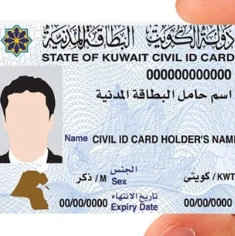Driving Sustainable Development: Exploring the ESG Sustainability Report in Kuwait
In today’s rapidly changing global landscape, the concept of sustainable development has gained significant traction. Businesses worldwide are increasingly recognizing the importance of Environmental, Social, and Governance (ESG) factors in their operations. This article aims to delve into Kuwait’s commitment to sustainable development and explore the significance of the ESG sustainability report in the country.
The Rise of ESG Reporting in Kuwait:
Kuwait has witnessed a notable rise in ESG reporting practices, driven by a growing recognition of the need for transparency and accountability. The country has taken significant steps to establish a regulatory framework and initiatives supporting ESG reporting. This has paved the way for businesses to integrate ESG considerations into their decision-making processes and disclose relevant information to stakeholders.
Key Components of Kuwait’s ESG Sustainability Report:
Kuwait’s ESG sustainability report encompasses various dimensions of sustainability. It covers environmental performance metrics, such as energy consumption, greenhouse gas emissions, and water usage. Additionally, social impact indicators, including employee welfare, community engagement, and diversity and inclusion, are crucial components of the report. The governance section focuses on corporate governance practices, board structures, executive compensation, and risk management.
Environmental Sustainability Efforts:
Kuwait has recognized the pressing need to address environmental challenges and has initiated efforts to promote sustainability. The country has implemented measures to mitigate climate change, such as renewable energy projects and energy efficiency initiatives. Kuwait’s sustainability report highlights achievements in waste management, conservation, and environmental preservation, while also outlining ongoing projects and future goals in promoting environmental sustainability.
Social Responsibility and Community Engagement:
Promoting social well-being and community development is a key focus of Kuwait’s sustainability efforts. The ESG sustainability report showcases initiatives aimed at improving education, healthcare, and social infrastructure. Additionally, corporate social responsibility (CSR) programs play a vital role in Kuwait’s sustainable development agenda. These programs aim to uplift local communities, empower individuals, and foster social cohesion.
Ensuring Effective Governance:
Transparent and accountable governance practices are essential for sustainable development. Kuwait prioritizes strong corporate governance, encompassing principles of transparency, accountability, and ethical business conduct. The ESG sustainability report sheds light on governance practices, including board structures, executive compensation policies, and risk management frameworks. These measures aim to ensure effective oversight and promote responsible business practices.
Challenges and Opportunities:
While Kuwait has made significant strides in ESG reporting, challenges remain. These include raising awareness among businesses, standardizing reporting practices, and integrating sustainability into strategic decision-making. However, the benefits of ESG reporting cannot be overlooked. It enhances investor confidence, fosters brand reputation, and opens doors to sustainable financing options. Embracing ESG principles presents an opportunity for Kuwait to position itself as a leader in sustainable development in the region.
Future Outlook and Recommendations:
Looking ahead, Kuwait’s ESG reporting landscape is expected to evolve further. The country can continue to enhance ESG practices by encouraging greater collaboration between businesses, investors, and regulatory authorities. Encouraging the adoption of internationally recognized reporting frameworks and guidelines can also promote consistency and comparability. Moreover, integrating sustainability considerations into long-term business strategies is crucial for driving sustainable development in Kuwait.
Conclusion
Kuwait’s commitment to sustainable development is evident through its embrace of ESG reporting. The ESG sustainability report plays a vital role in promoting transparency, accountability, and responsible business practices. By focusing on environmental sustainability, social responsibility, and effective governance, Kuwait can pave the way for a more sustainable future. Embracing ESG principles will not only benefit the economy but also contribute to the well-being of society and the preservation of the environment.






